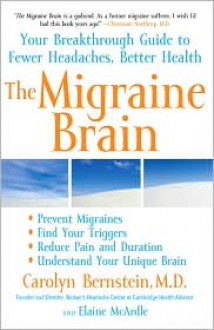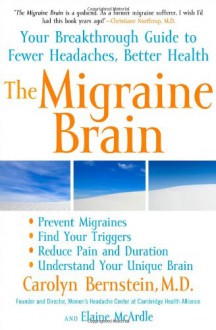 This is easily the best migraine book I've ever read. It's a fantastic resource and chock full of information.
This is easily the best migraine book I've ever read. It's a fantastic resource and chock full of information.The writing is dry; it's mostly information about migraines and/or examples of cases that the writer (an MD from Harvard who is a migraineur who runs has her own headache clinic) has dealt with in her clinic. The dry writing might turn some people off, but if you're like me and have read a lot of journal articles or other non-fiction writing, it shouldn't be a problem.
There are a number of forms and worksheets to help anyone discover symptoms, patterns, and triggers for their migraines, and also assess the severity (hopefully to be able to see what treatments are working). There is a lot of information to help deal with the issue holistically, it's not just about avoiding chocolate, wine, and taking medication. She comes at the problem from several angles, and mentions alternative treatments whether or not she actually agrees with them.
The reason I didn't give this book 5 stars is because I felt some of the information wasn't quite complete. I've taken most of the medications (prophylactic and treatment mentioned), so when she says "if you can't take X, you may be able to take Y, check chapter 9" and Chapter 9 doesn't address the difference between those drugs, I find it a problem. Also, she mentions that a "doctor who immediately prescribes Z is probably not a good doctor, go see ch 9" and again doesn't address that, another problem (is it because Z is dangerous, or because Doctor isn't checking out any of those other meds? what?).
So overall, amazing. Whether or not I believe the information about the pharmaceuticals in use is complete, it's still pretty good and the rest of the book is excellent, giving plenty of tools for helping deal with migraines.

 Log in with Facebook
Log in with Facebook 






